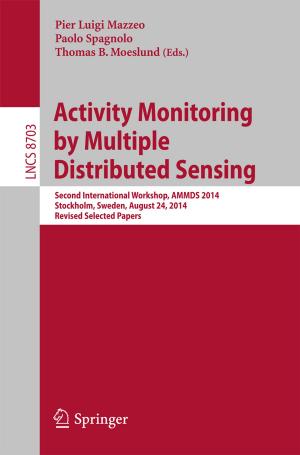Confidential Informants
A Closer Look at Police Policy
Nonfiction, Health & Well Being, Psychology, Research, Social & Cultural Studies, Social Science, Crimes & Criminals, Criminology| Author: | Jon Shane | ISBN: | 9783319222523 |
| Publisher: | Springer International Publishing | Publication: | September 19, 2015 |
| Imprint: | Springer | Language: | English |
| Author: | Jon Shane |
| ISBN: | 9783319222523 |
| Publisher: | Springer International Publishing |
| Publication: | September 19, 2015 |
| Imprint: | Springer |
| Language: | English |
While confidential informants (CI’s) can play a crucial role in police investigations, they also have the potential to cause great harm if they are dishonest. The process by which police agencies qualify a CI to work and the strength of agency policy may be the source of the problem. This Brief examines the integrity problem involving CIs in police operations within the United States, provides an overview of pitfalls and problems related to veracity and informant integrity including the difficulties in detecting when a CI is lying, and compares the provisions of actual published police policy to the model CI policy published by the International Association of Chiefs of Police (IACP). The analysis shows a wide divergence between actual police policy and the national standard promulgated by the IACP.
The Brief provides policy recommendations for improving use of CIs that can potentially reduce or eliminate integrity problems that can lead to organizational accidents such as wrongful arrests and convictions, injuries or deaths. Some Courts have issued measures to ensure that information received from CIs is reliable by examining sworn testimony and documents related to their work. However, as this Brief explores, this judicial effort arises only after a police operation has taken place, and the use of force – even deadly force—has already been employed. The author proposes integrity testing beforehand, which would allow police to have a greater understanding of a CI’s motivation, ability and veracity when conducting law enforcement operations. In addition, there are aspects of police policy that can enhance CI management such as training, supervision and entrapment that can further guard against integrity problems. Although integrity testing is not flawless, it does interpose an additional step in the CI management process that can help guard against wrongful conviction and perjury that harms the judicial process.
While confidential informants (CI’s) can play a crucial role in police investigations, they also have the potential to cause great harm if they are dishonest. The process by which police agencies qualify a CI to work and the strength of agency policy may be the source of the problem. This Brief examines the integrity problem involving CIs in police operations within the United States, provides an overview of pitfalls and problems related to veracity and informant integrity including the difficulties in detecting when a CI is lying, and compares the provisions of actual published police policy to the model CI policy published by the International Association of Chiefs of Police (IACP). The analysis shows a wide divergence between actual police policy and the national standard promulgated by the IACP.
The Brief provides policy recommendations for improving use of CIs that can potentially reduce or eliminate integrity problems that can lead to organizational accidents such as wrongful arrests and convictions, injuries or deaths. Some Courts have issued measures to ensure that information received from CIs is reliable by examining sworn testimony and documents related to their work. However, as this Brief explores, this judicial effort arises only after a police operation has taken place, and the use of force – even deadly force—has already been employed. The author proposes integrity testing beforehand, which would allow police to have a greater understanding of a CI’s motivation, ability and veracity when conducting law enforcement operations. In addition, there are aspects of police policy that can enhance CI management such as training, supervision and entrapment that can further guard against integrity problems. Although integrity testing is not flawless, it does interpose an additional step in the CI management process that can help guard against wrongful conviction and perjury that harms the judicial process.















